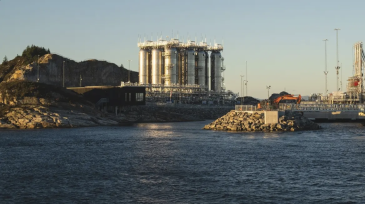HSE
-
Real-time location systems have emerged as invaluable tools for enhancing safety and efficiency in the operations of oil and gas organizations. This paper investigates the various applications of the technology within the industry, highlighting its transformative effect on safety protocols and operational efficiency.
-
The meeting of leaders, experts, and stakeholders emphasized the urgency of addressing greenhouse-gas emissions to mitigate climate change and align with global sustainability goals.
-
This paper shares learnings from building a corporate sustainability culture as an infrastructure for environmental and sustainability programs by identifying enablers and challenges common to oil and gas organizations, which are relatively advanced in their sustainability journey.
-
Shell’s combination of digital worker technologies enables collaborative troubleshooting and inspections while reducing travel and boosting efficiency.
-
TechnipFMC diver Stuart Cowie shares his 17-year experience working as a saturation diver in the oil and gas industry and how to manage mental health and well-being during the often-isolating work demands.
-
The first phase of the Norwegian project is expected to receive its first carbon dioxide this year, with the second phase slated to start operations in late 2028.
-
This paper analyses the Global Biodiversity Framework and its relevance to the transitioning energy system, documenting the work that has been completed and that which is still ongoing.
-
A recent survey by consultancy firm Bain & Company found that, despite record clean-energy investments, executives cited financial constraints, shareholder hesitancy, and policy uncertainty as key obstacles to reaching net-zero carbon emissions.
-
This paper describes how a global energy technology company developed a mental health first aid program to provide workplace access to a trained mental health responder and how this initiative helps raise awareness of the importance of good mental health in the workplace.
-
A new publication from Ipieca and the International Association of Oil and Gas Producers presents a health-focused roadmap for navigating the energy transition.










